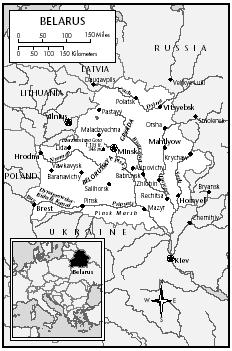
15 million worldwide (including more than 9 million in Belarus)
Belarusians or Belorussians (Belarusian: Беларусы, Biełarusy, previously also spelled Belarussians, Byelorussians and Belorusians, also White Russians) are an East Slavic ethnic group who populate the majority of the Republic of Belarus and form minorities in neighboring Poland (especially in the former Bialystok province), Russia, Lithuania and Ukraine. Noticeable numbers have immigrated to the United States, Brazil and Canada in the early 20th century. Since the breakup of the USSR several hundred thousand have immigrated to the European Union, United States, Canada and Russia. Introduced to the world as a new state in the early 1990s, the Republic of Belarus brought with it the notion of a re-emerging Belarusian ethnicity, drawn upon the lines of the Belarusian language. There are over 8 million people who associate themselves with the Belarusian ethnicity today.
The native language of the territory of Belarus is Belarusian; however the majority of Belarusians in Belarus are able to speak Russian and often use it as their day-to-day language (especially in Minsk and other large cities).
The prefix Bela- translates into "White" so these people were sometimes called White Russians (though not to be confused with the political group of White Russians that opposed the Bolsheviks during the Russian Civil War). This name was in use in the West for some time in history, together with White Ruthenes, White Ruthenians and similar forms. Using the term "White Russians" is misleading as it incorrectly suggests being a subgroup of Russians and some Belarusians take offense for it being applied. Belarusians trace their name back to the people of Rus and not to Russians, who are also descendants of the people of Rus.
The Belarusian people trace their distinct culture to the Grand Duchy of Lithuania and earlier Kievan Rus and the Principality of Polatsk. Most Belarusians are descendants of the East Slav tribes Dregovichs, Krivichs and Radimichs. Early East Slavs also mixed with the local Balts, especially in the west and north-west of today's Belarus. In 13th-18th centuries Belarusians were mostly known under the name of Rusins (Ruthenians) or Litvins (Lithuanians), which refers to the state of the Grand Duchy of Lithuania (Litva, Vialikaja Litva) of which the White Ruthenian lands were part of since the 12th century and where Ruthenian language was an official tongue. On the grounds of the dominance of Ruthenian language (which later evolved into modern Belarusian language) some Belarusian historians believe the Grand Duchy of Lithuania to have been their national state when it existed.
After World War I Belarusians had their own statehood, with varying degrees of independence - first as the short-lived Belarusian National Republic under German occupation, then as the Byelorussian SSR from 1919 until 1991, which merged with other republics to become a constituent member of the Soviet Union in 1922). Belarus gained full independence with the dissolution of the Soviet Union in 1991.
 Lefthit
Lefthit
No comments:
Post a Comment